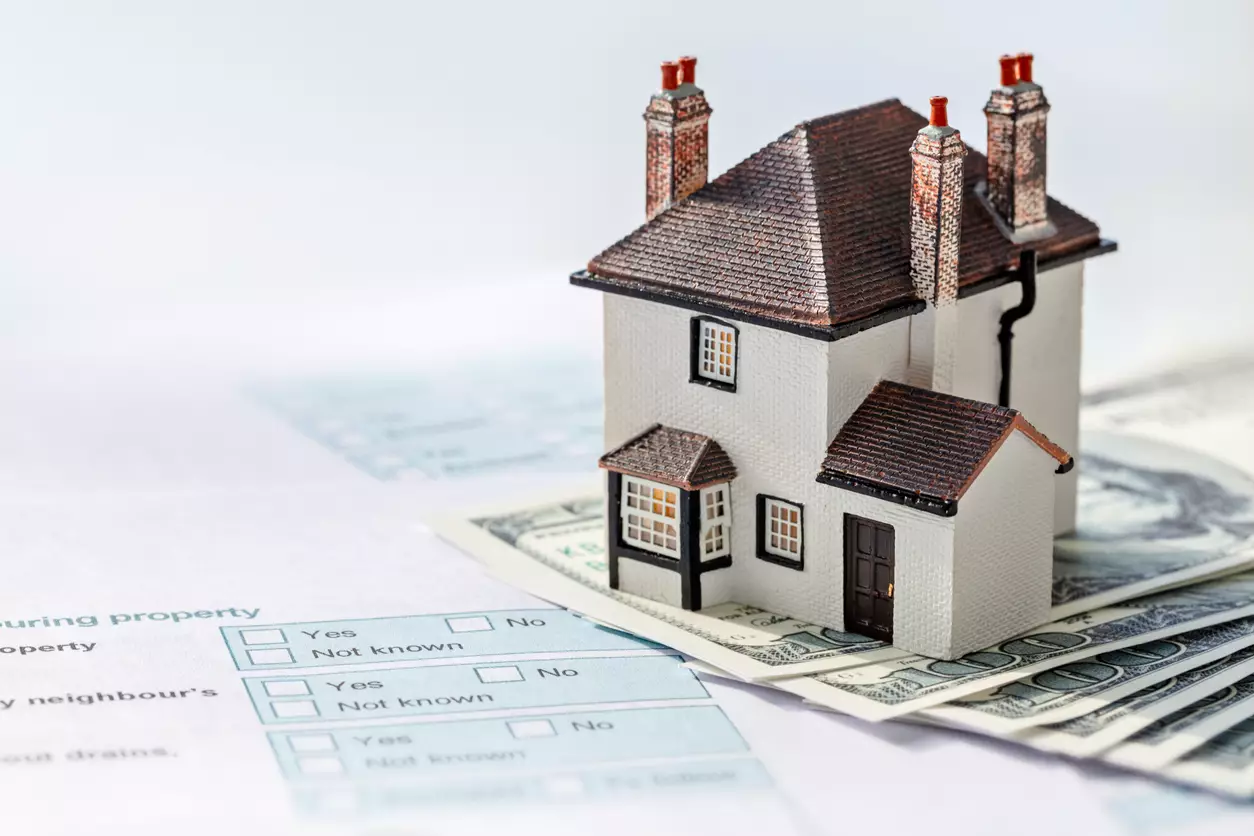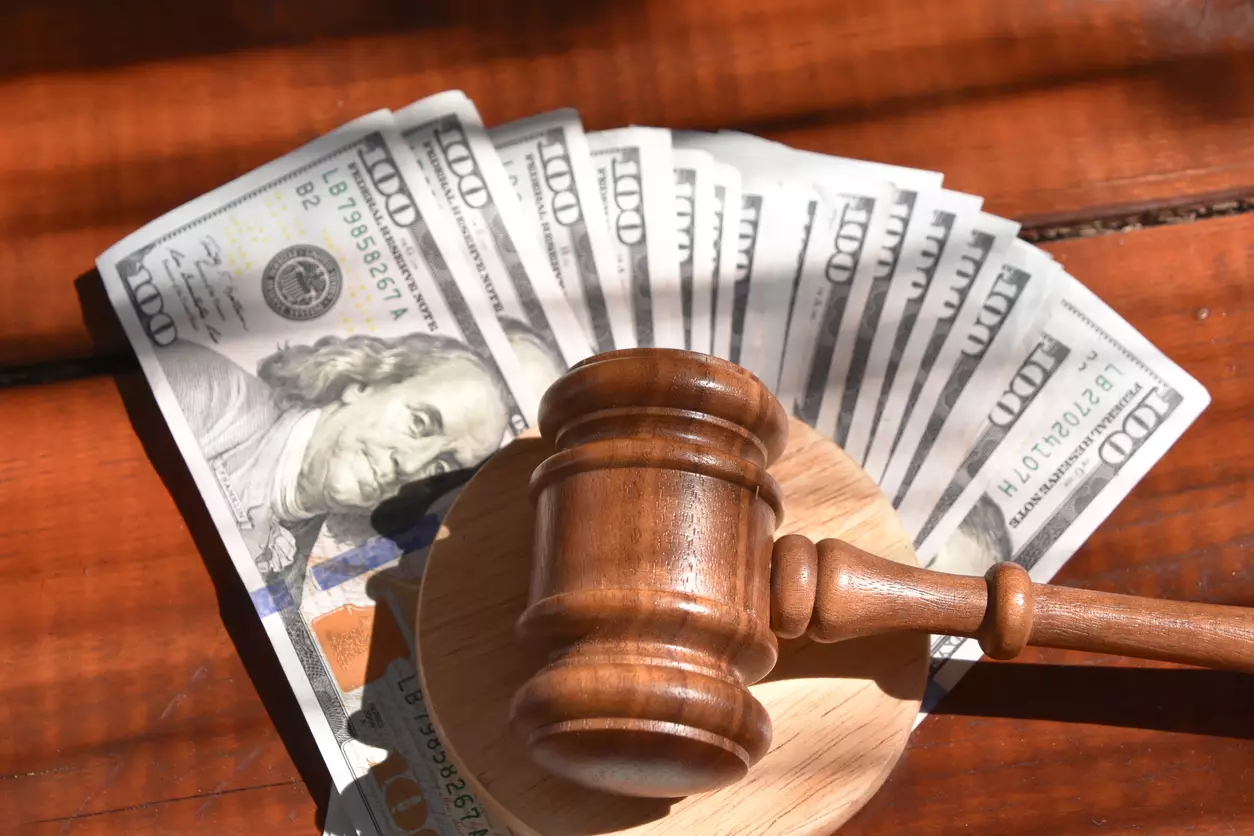What Is a Tax Lien on a House

When you own a home, you'll likely be tasked with paying annual property taxes. If you have a job, you should be familiar with the need to pay your taxes every year. If you don't pay your taxes on time, the government can place a lien on your property. This is a legal claim that can affect ownership rights, your selling ability, and credit.
What Is a Tax Lien?
A tax lien is a type of government claim that can be placed on your property for unpaid taxes. It doesn't mean that the property is taken or seized. Instead, it secures the debt to ensure that the government can recover it if the property is sold or you default on your mortgage. Liens can be placed by local, state, or federal tax authorities. For example, the Internal Revenue Service (IRS) can put a lien on your home if you don't pay your federal taxes on time.
Keep in mind that liens will cover your past-due taxes as well as any interest, fees, or penalties that have accumulated since the initial due date. Once a lien is placed on your property, you can have it removed by paying what you owe or successfully disputing it.
Types of Tax Liens
There are three types of tax liens, which include property, federal, and state liens. A lien can be either involuntary or voluntary. For example, a voluntary lien occurs when you take out a mortgage to purchase a home. Most liens are involuntary. The government won't ask you before it places a lien on your home. The type of tax lien that's applied to your property depends on which government body you owe money to.
Let's say that you live in a state that collects income tax. If you don't pay these taxes when they're due, the state can place a lien on your home. The state may also choose to garnish your wages or freeze your bank accounts to collect the money you owe.
The effects of a state and federal tax lien are practically the same. The main difference is that it can be easier to remove a federal lien. If you pay all your outstanding taxes to the IRS, they'll remove the lien within 30 days. If you file for bankruptcy, the lien won't be removed.
As for property tax liens, they occur if you fall behind on your annual tax payments. These liens are placed on properties by county and municipal governments. You'll usually receive a period of one to two years to repay everything you owe. Otherwise, the government can foreclose on your home and sell the property to cover the outstanding taxes.
How Tax Liens Work
The tax lien process can vary in length and complexity depending on the type of lien that's placed on your property. Let's say that you owe $3,000 in state property taxes for 2025. If these taxes go unpaid beyond the specific deadline in your state, you'll likely receive a notice from the taxing authority that demands payment.
The notice you receive should include another due date for your late payment. If the payment remains unresolved, the lien will be filed in public records. When this happens, you can still reverse the issue by paying your outstanding taxes. However, the government will have a considerable amount of control over your property unless you reclaim it.
The lien gives the government legal rights to the property if it's sold or refinanced. For example, let's say that you sell your home for $350,000 with a remaining mortgage of $100,000. Without a lien, your profits will amount to roughly $250,000. If a $50,000 tax lien has been placed on your property, you'll receive closer to $200,000 in profits.
In some cases, this issue can lead to foreclosure or a tax lien sale, both of which indicate that you'll lose ownership of the home. To better understand what this process entails, let's consider the steps of a property tax lien in California. If you don't pay your taxes on time, your property will be classified as "tax-defaulted" land on July 1. If a property remains in default for five years, the government can sell it altogether.
When you owe tax debt, California automatically has a statutory lien on any property you own. You can avoid additional penalties by paying in full or by creating a payment plan. If you don't take any of these actions, a Notice of State Tax Lien will be placed on your property. In California, the lien will become public record. It will also be effective for 10 or more years unless you repay everything. If a lien becomes public record, you might be unable to buy property, obtain a loan, or get a job.
What Happens If You Have a Tax Lien?
There are numerous consequences of having a tax lien on your property. For example, you may have difficulty selling or refinancing the home. Lenders and borrowers are wary about completing this type of transaction if a large tax lien is still present on the property. You can mitigate these issues by agreeing to cover the liens with the proceeds from the sale. However, this requires having equity in the home.
It's also possible that your credit will be damaged. These liens no longer drop your credit score or appear on your credit report. However, they can make it difficult for you to get new credit.
Some additional penalties and interest may accrue if you're unable to repay the entire lien amount immediately. All unpaid federal taxes are paired with a late payment penalty, which is around one-half of a percent each month. The maximum amount is 25% of the amount you owe on the due date of the return.
Once you receive a notice of intent from the IRS to levy your property, the penalty will increase to 1% of the amount you owe. You can lower the penalty amount to one-quarter of a percent if you create an installment agreement with the IRS. Keep in mind that any payments you make will be applied to the tax first and the interest last.
If you avoid every chance you receive to repay the unpaid taxes, you could lose your home. As mentioned previously, homes can be sold by the government in tax lien sales. Investors often participate in these sales to purchase homes at a lower cost. Most state governments allow homeowners to take steps to reclaim their properties before finalizing a tax lien sale.
How to Remove or Avoid a Tax Lien
While tax liens can be highly damaging, they're not difficult to remove or avoid. The simplest way to avoid a tax lien is by paying your taxes on time, which typically involves filing your tax return by April 15 and paying your property taxes by the annual due date. Property taxes are usually folded into monthly mortgage payments, which means that you shouldn't miss one.

You can avoid a lien altogether by setting up a payment plan, which governments are often eager to do. For example, the IRS offers several payment plans, which include short-term and long-term ones.
There's also a possibility that a lien was mistakenly placed on your property. In this scenario, you can dispute the lien. The guidelines for disputing a lien depend on the government entity that created it in the first place. The IRS usually provides instructions on how to dispute a notice in the original document. If you disagree with the decision the IRS makes, you can file an appeal with the Independent Office of Appeals.
As mentioned previously, you'll receive a notice from the government before they place a lien on your property. You can avoid the lien by paying your outstanding taxes in full by the new due date.
If the payment is owed to the IRS, you can apply for a lien withdrawal or subordination. A federal tax lien subordination allows other creditors to claim what they're owed before the IRS, which should make it easier for you to obtain a mortgage or loan. A withdrawal will get rid of the Notice of Federal Tax Lien, which is viewable by the public. You'll still be required to repay what you owe. A withdrawal can also take place if you enter into an installment agreement or pay all your remaining taxes.
How a Tax Lien Affects Homebuyers
Tax liens don't solely affect homeowners. If you're in the market to buy a home, check the title for any tax liens before you go through with a purchase. Liens are tied to the property, not just the seller. A title search usually reveals these defects during the buying process. If you're applying for a mortgage loan, most lenders require a title search before underwriting takes place.
When buying a home, make sure all liens are cleared before closing. Work with a reputable title company or real estate attorney to avoid delays and issues with uncleared liens.










